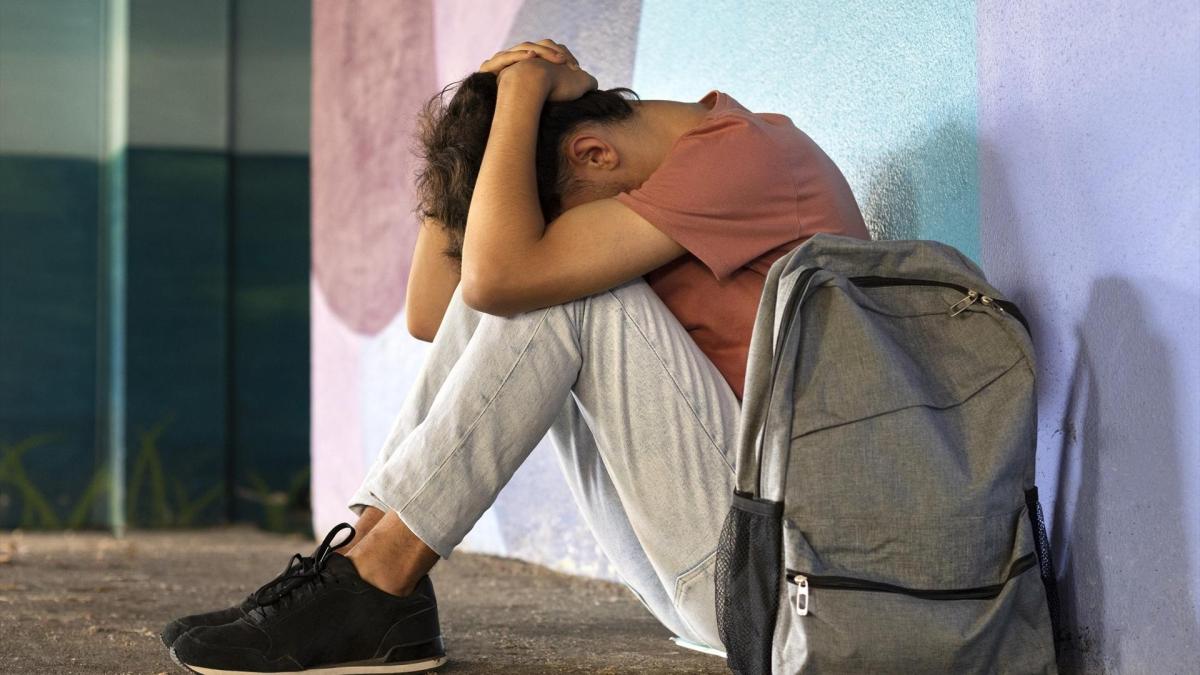41% of adolescents in Spain acknowledge having had or believing they have had a mental health problem in the last year. However, more than half have not asked for help and a third have not told anyone.
These are the data provided by the Adolescent Opinion Barometer on Mental Health prepared by Unicef in collaboration with the University of Seville, with the perceptions of nearly 5,000 young people aged 13 to 18 collected in 168 educational centers in Spain.
As explained by José María Vera, executive director of UNICEF Spain during the presentation of the study, “There is a very significant change about mental health, more is known, more is talked about, but there is a lack of data and better knowledge; “Our adolescents increasingly normalize talking about mental health or identifying possible problems, but a certain stigma still persists around the subject.”
🔴 LIVE we present the results of a childhood and adolescent opinion barometer about mental health. We compiled the perceptions of more than 5,000 girls and boys. There are some worrying data and others hopeful. We tell you ⬇️ pic.twitter.com/A8MQlnCrQp
— UNICEF Spain (@unicef_es) October 8, 2024
More than half do not ask for help
Not knowing who to turn to or considering that the problem is not important are one of the reasons that lead to 51.4% of minors do not ask for help when they have experienced a mental health problem.
According to Pilar Ramos, researcher at the University of Seville and author of the report, many adolescents with these problems “do not know who or where to turn and think that their problem is not important to ask for help.”
Other reasons set out in the report: Six in ten want to keep their mental health problems a secrettwo out of 3 adolescents do not want their families or guardians to know what is happening to them, they believe it is better to let time pass (56%) or they do not trust the staff at their educational center (56%).
Those who do ask for help, do so in their immediate environment. 73.6% from their friends, 60.8% ask for professional psychological help, 34% from professionals at the educational center, 30% from medical and psychiatric professionals and 32.7% listen to professionals on the internet and social networks.
This study also shows that more than 4 out of 10 adolescents consider that their mental health problems are not important, they do not know what is happening to them or they do not know who or where to turn.
The role of schools
40.5% of adolescents consider low or very low probability that their educational center, specifically guidance and tutoring professionals, will help them.
Lack of trust in the people who play these roles, thinking that they will not keep their secret or believing that these professionals do not have the appropriate training to help them, are some of the reasons why they do not seek help in the school center.
For José Ángel, 17 years old, one of the young people who has interpreted the data“it is important to have someone at the center to talk to when you are pressed with exams or any other problem but they are not usually available, plus people are afraid that their classmates will see them talking to a counselor because I have a problem of mental health”.
How to take care of mental health?
Young people believe that they take care of themselves with sleeping habits (74.9% think so), physical exercise (62.3%) and eating a balanced diet (50.6%). As external determinants, they point out a good relationship with their parents (82.6%), the support of close people (82%) and doing things that they like and make them feel good (78.6%).
Regarding the factors that harm their mental health, the researcher explained that adolescents aim to “low self-esteem, the consumption of alcohol and other drugs, having physical health problems and having financial difficulties”. “If we ask them about the external ones, they highlight being a victim of bullying or cyberbullying, and having family problems.”
More than half consider the networks they use the most to be quite or very dangerous for their mental health. (X, TikTok and Instagram)although they also recognize that they are their allies when it comes to searching for information.
Help among friends
Almost 8 out of 10 adolescents would offer their own help (more girls)followed by the advice to go to family (73%), professionals (68%) or friends (59%).
Only 1 in 10 adolescents would suggest seeking help on the internet and social networks or would recommend not telling anyone what is happening to them.
Regarding attitudes and prejudices towards mental health problems, a large majority (78%) say they would maintain a friendship with someone their age who is visiting or has visited a mental health professional; Another 25% think people with mental health problems feel shame.
